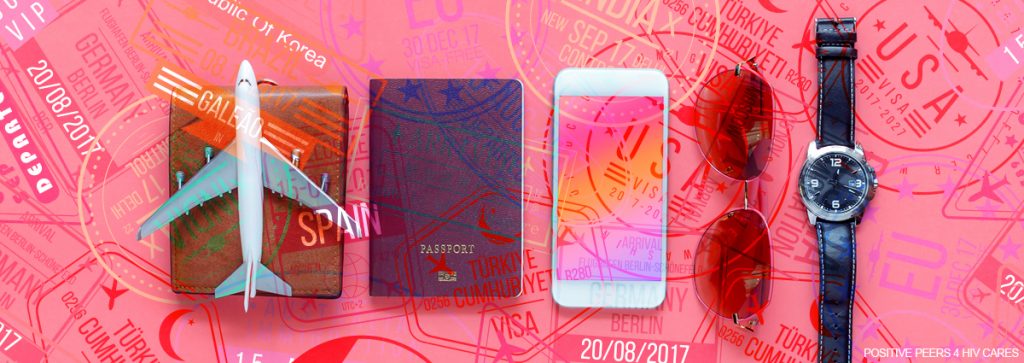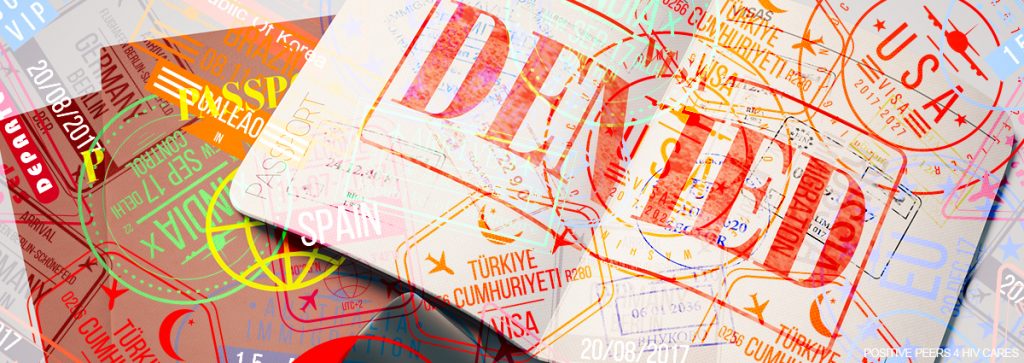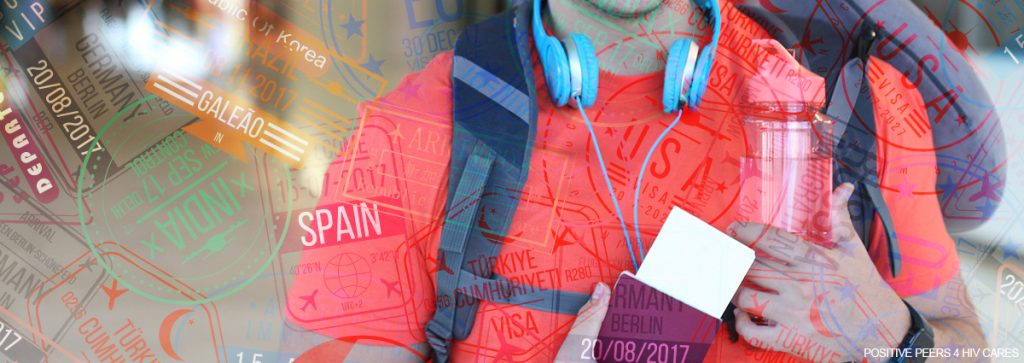
By: Jennifer McMillen Smith, LISW-S, HIV Social Worker at MetroHealth Medical Center and medically reviewed by Ann K. Avery, MD, Infectious Disease Physician at MetroHealth Medical Center
Do you ever find yourself daydreaming about lying in an exotic land with a beautiful lover by your side? It's safe to say that most of us have had those thoughts run through our minds at least once — if not a few hundred times.
Traveling the world can be refreshing for the soul, clearing your body of anxiety and stress. But when you live with HIV, some extra planning and precaution need to be taken before going on your latest adventure. The important thing to remember is that HIV doesn’t need to prevent you from experiencing the world!
As long as you do some research and planning, fear doesn’t need to keep you from visiting new countries, planning to see friends, or taking a job where you will need to travel.
Here are a few points to keep in mind:

Talk to your doctor
It's always a good idea to have a conversation with your doctor a month or two before you plan to travel. There are certain health risks associated with visiting certain countries when living with HIV.
Keeping your doc in the loop will help make sure you have the medication you need to stay healthy while you’re away. They may also be able to help you learn about HIV clinics in the country you plan to travel so you can have peace of mind.
The Center for Disease Control and Prevention (CDC) offers a complete travelers health website where you can find recommended vaccines, medicines, and regularly updated travel advisories for immune-compromised adventure seekers.
This is important because some countries have vaccines that visitors are suggested to get before their travel, and people living with HIV may not be able to. If this is the case, you could be issued something called a certificate of exemption, but countries can choose whether or not to accept it. If the country you want to visit doesn’t accept it, keep your head up — there are a number of travel destinations that will gladly accept the certificate.

Know the laws
Unfortunately, several countries have bans on visitors living with HIV who disclose their condition. However, laws are fluid and change over time. For example, Singapore recently lifted their ban and now people living with HIV may visit the country for up to three months at a time.
Luckily, not many countries have bans. But it’s still important to know the specific laws in a country you play to visit. You can make an anonymous call to a consulate or embassy to learn of any recent law changes.
With the current state of healthcare, it's extremely important to check with your health insurance to see if anything is covered during your trip. Medicare and Medicare do not pay for medical costs incurred while abroad, yet in countries with universal healthcare, it is possible they may cover health expenses. Check the travel site of the country you wish to visit in order to learn how healthcare operates for tourists.
Come join our private, stigma-free, supportive community.
Health management tools with medication & appointment reminders.
Social networking in a community conversation & private chats.
Pack smart
It’s always a good idea to pack your pills first to ensure you never forget them. Remember to pack them away from any liquids or gels. It’s also a wise travel move to take a backup supply in case there are any travel delays, issues, or you lose any of your medication. Also, always take your meds with you on your travel bag (instead of any checked bags) and stay mindful of time zone changes while traveling.
To prevent issues with border control, take a prescription, doctor's letter, or an unsealed prescription bottle to be able to quickly show officials who may question the medication.

Eat smart
Always try to carry a snack with you; some of your medication may need to be taken with food. Water will also be super important during your travels — so it’s a great idea to drink plenty of fluids on the flight. Tap water, ice, and raw fruits/vegetables may not be the best to eat or drink while abroad since they can cause a greater risk of infections and food-related illness.

Hook up smart
Plan on getting your freak on while traveling? Meeting new people from other parts of the world is exciting, sexy, and fun! Becoming familiar with new cultures can lead to some sexual tension building between you and an intriguing stranger.
However, it's important to be mindful — just like when you're hooking up back home. We encourage you to be safe, ask smart questions, and disclose that you are living with HIV if you are looking to get some sexy time while you are abroad.
This may seem like quite a bit to do in order to go on a trip, but with some research and preparation, you’ll have a much better trip. Your wanderlust and adventure travels await, all you have to do is a little planning to put your mind at ease!
Related Blogs:


